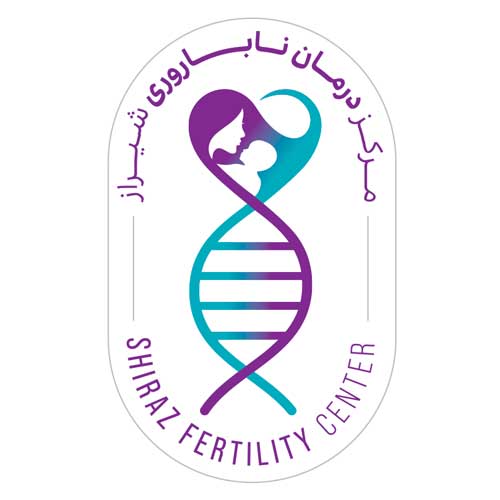
Blastomere biopsy

Single-gene diseases
Immunological factors in
implantation failure and unexplained recurrent miscarriage
Recurrent miscarriage is defined as the occurrence of three or more miscarriages before the fourteenth week of pregnancy. Its causes can include parental chromosomal abnormalities, certain uterine abnormalities, hormonal disorders, infections, thrombophilia, and Sickle cell disease. However, when none of the known causes are observed in a person with recurrent miscarriage, this is called unexplained recurrent miscarriage (URM), which is seen in half of recurrent miscarriages. Among these, aneuploidies, immunological factors, and endometrial tolerance disorders are considered as effective factors. In the definition of recurrent implantation failure (RIF), although there is no general consensus, it is when three or more embryo transfers fail, under conditions where a minimum of four good-quality embryos have been transferred in total.

The endometrial environment plays a vital role in the success of embryo implantation, and in pregnancies, the embryo can continue to live only when tolerance is established in the mother’s immune system against the embryo, which also has paternal antigens. Numerous studies have shown that in women with recurrent miscarriage and implantation failure, immune cells and cytokine expression are imbalanced. Studies in this area have focused more on immune cells and cytokine profiles in the circulation of women with recurrent miscarriage and RIF, while studying these in the endometrium before implantation has been less common.
T lymphocytes
As mentioned, Th1 cells mediate inflammatory responses by secreting cytokines such as TNF-α, IL-2, and IFN-γ, while Th2 cells secrete anti-inflammatory cytokines such as IL-13, IL-4, and IL-10, leading to anti-inflammatory responses. Several studies have shown that in patients with URM and RIF, the level of Th1 cytokines, especially TNF-α and IFN-γ, increases in the circulation after ovulation induction. Co-culture of trophoblast cells with lymphocytes in women with recurrent miscarriage leads to the secretion of a Th1 cytokine profile. The ratio of inflammatory to anti-inflammatory cytokines in women with RIF was higher compared to the control group.
In RIF patients, the number of cells expressing TNF-α was higher compared to URM patients. Higher levels of TNF-α and IL-1β in pre-transfer endometrial secretions in RIF patients were associated with clinical pregnancy in them, indicating that an inflammatory environment is needed to initiate implantation. Although TNF-α secretion is required for embryo acceptance in the endometrium, its continuous secretion can be harmful. Inflammatory cytokines in the circulation of healthy pregnant women are higher than in healthy non-pregnant women, but in women with recurrent miscarriage, they have been reported to be higher than this amount.
Under laboratory conditions, IL-15, which recruits uNKs, is inhibited by IL-1β, and based on this, IL-1 receptor antagonists reduce the number of implanted embryos before implantation. Although these studies show that a mild inflammatory response is needed for pregnancy, cytokine imbalance can lead to miscarriage. Other studies have shown that Th17 cells increase in the circulation of women with URM and RIF compared to fertile women. In mice, deletion of Treg cells leads to pregnancy termination, and several studies have reported that the level of these cells in their circulation and decidua is reduced in URM women. The secretion of IL-10 and TGF-β in Treg cells and their inhibitory capacity is reduced in patients with URM. It has also been shown that Foxp3+ (not high+) lymphocytes are reduced in women with URM, and intravenous immunoglobulin (IVIG) increases the number of Foxp3+ Treg cells.
uNK cells
Decidual angiogenesis is one of the important mechanisms of endometrial maturation and implantation. Studies have shown that in patients with RIF and recurrent miscarriage, the number of uNK cells with CD56 and CD16 markers increases, while some other studies have reported an increase in uNK cells with CD56 and CD16+ markers. In RIF and URM patients, an increase in uNKs leads to increased angiogenesis before implantation and consequently early contact of the embryo with maternal blood vessels and increased oxidative stress. Markers of uNK activity, IL-15, and IL-18 play a role in the maturation of these cells, and it has been shown that there is a positive correlation between the number of these cells and the level of these cytokines in the endometrium of women with RIF. Clinical reports show that circulating NK cells increase in patients with recurrent miscarriage and RIF. In these patients, NK cells are in an activated state and their killing properties are increased.
In patients with high NK activity, the success rate of pregnancy decreases. It has also been observed that the production of cytokines by NK cells increases in these patients, so that the level of TNF-α increases and the number of cells secreting IL-10 decreases. Such reports and studies show that among women with URM and RIF, there are immunological disorders such as increased inflammation, increased activity of T and NK cells, and impaired function of Treg cells. Such imbalances have been observed in the levels of immune cells and cytokine profiles in the circulation of patients, therefore, more studies are needed at the endometrial tissue level and in different groups of patients.
Source: Clinical Approaches to Infertility in Reproductive Biology
Also read:



